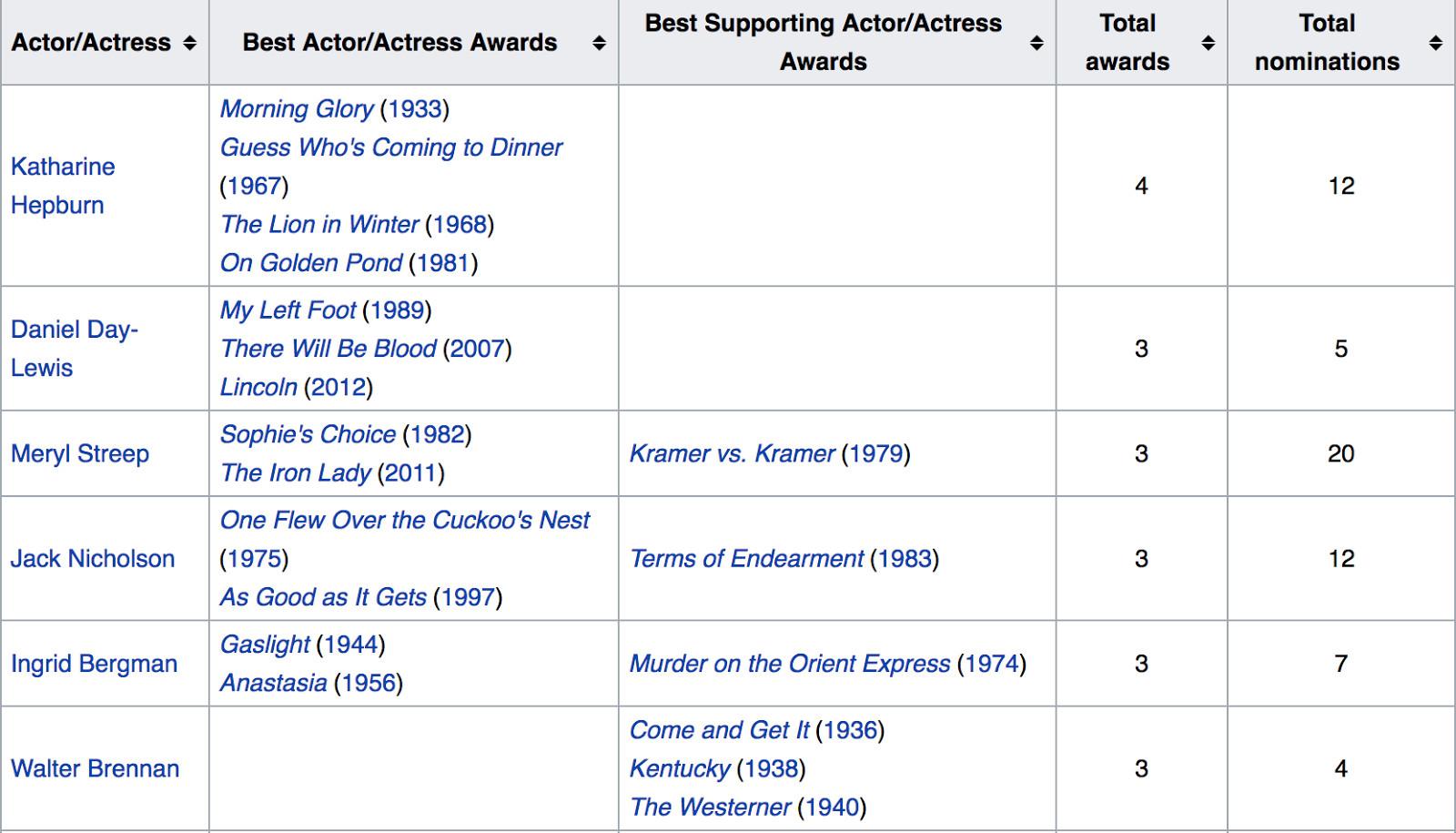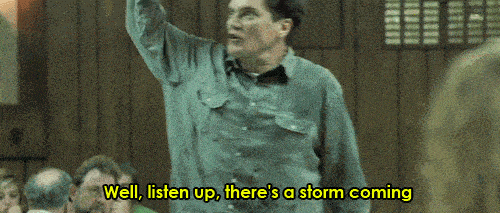Big data is wounded. The prognosticators are in pain. Analysts are slumped over, clutching their gut. Russell Westbrook is averaging a triple-double. The Super Bowl was historically anomalous. Donald Trump secured — have you heard? — 306 Electoral College votes. We should know better at this point. But by all accounts, this Oscars season has been predictable, straightforward, and in keeping with the expectations set many decades ago. La La Land, the front-runner in nearly every category of note, fulfills a specific set of requirements that pundits have identified as appealing to the 6,500-plus voters in the Academy of Motion Picture Arts and Sciences: It’s about aspirant showbiz kids desperate to achieve their dreams in the City of Angels. Easy money.
In recent months, Damien Chazelle’s third film has been power-washed through the Hollywood hype cycle — from the little musical that could to awards darling, from box-office surprise to whitewashing cultural travesty, from backlash victim to impervious favorite. Is this a coronation? Can we trust the numbers? Could a sweep be in play? And, as I wrote last month, will this be a telecast with historically low viewership? This is not a time for certitude, but rather self-reflection, curiosity, and flexibility. And with that, here are some reckless predictions.
Best Picture
The Winner: La La Land
Under normal circumstances, it’s wise to tease the most essential prediction until the very end, but La La Land is one of the strongest favorites in recent memory, and, against my better judgment for the history of time, I’m confident the movie will win. Just Tuesday, it became the highest-grossing live-action original movie of 2016. That is shocking given the movie’s provenance, star power, and the sheer number of times the word “jazz” appears in its script. La La Land has already proved anything is possible.
The Blowback: The academy has endeavored to blow back the stench of last year’s #OscarsSoWhite controversy, adding new members, emphasizing diversity, and conscripting old and inactive voters to a marginalized emeritus role, as explained in this wide-ranging New Yorker story. And it made some headway with this year’s nominations, which showered films like Moonlight, Fences, Hidden Figures, OJ: Made in America, and 13th with honors. But a La La Land win won’t look good, and its storming momentum has been harshly criticized for the past 30 days. This would not be a Crash-level absurdity, or a Shakespeare in Love–over–Saving Private Ryan example of ruthless electioneering. But it would confirm a navel-gazing insularity that many feel is emblematic of the film industry.
The Legacy: La La Land is frothy and graceful, but given that it acts as a homage to a form that was perfected in Hollywood 65 years ago, it may not have much of a shelf life as a beloved American classic. This could be a short victory lap after tying the record for the most nominations ever. If it secures 12 wins and breaks the record — a legitimate possibility given some of the betting odds in play — it may seem like a historical curiosity to movie fans. This impish, purposely duplicative trifle as the all-time reigning Oscars champion? That will seem a mite strange.
Best Director
The Winner: Damien Chazelle, La La Land
There have been 25 instances in 88 years in which there was a break between the Best Picture winner and Best Director recipient. But eight of those have come in the past 20 years, and the trend appears to be gaining some intensity. How can the best-directed film not be the Best Picture? Ask Ang Lee, who has twice won, for Brokeback Mountain in 2006 and Life of Pi in 2013, even though neither film won Best Picture. Lee has a reputation as a director’s director, a malleable craftsman who imbues a spiritual and precise quality to his movies no matter the genre or form in which he’s working. He’s admired, even if his films are not always adored. The same is true of some of this year’s nominees — Moonlight auteur Barry Jenkins, in particular, is Lee-esque in his empathy and specific, artful vision. But the 32-year-old Chazelle, who picked up an Adapted Screenplay nomination in 2015 for his breakthrough Whiplash, is more of a classic pedigree man. He’s like Spielberg or Orson Welles — a boy wonder with an eye on the past. The industry loves a kid who loves them.
The Blowback: According to some oddsmakers, Chazelle is running at an 86 percent likelihood to win. Like his movie’s Best Picture win, there will be some hand-wringing here. (Though not as intense as if Mel Gibson miraculously pulls off an upset. If that happens, bring a flak jacket to Twitter the morning after.) Jenkins has diligently and charismatically campaigned his small-budget personal story all the way to the biggest stage, and some will view the decision not to reward it as a historical error, akin to passing over Martin Scorsese in 1981 for Raging Bull. Moonlight, with its singular, elegant story, does feel emblematic of a young moviemaking career and an American moment in time, but pitting it squarely against La La Land is a binary that almost no one wants. Not even Jenkins. Something tells me he’ll get another shot.
The Legacy: I have a strong feeling that La La Land will ultimately end up as Chazelle’s fourth- or fifth-best movie — he is a genuine talent, an ambitious thinker, and a historical obsessive. These types tend to do well long-term. So this win may look a little like Elia Kazan’s in 1948 for Gentleman’s Agreement — an early acknowledgement of a major filmmaker a bit ahead of his time. How long before his On the Waterfront?
Best Actress
The Winner: Emma Stone, La La Land
This is getting a little dull. Though this is likely the category with the most uncertainty — with Isabelle Huppert making a late-breaking run for her work in the unsettling and fascinating Elle — Stone is still going to win. The split makes sense, though. Best Actress always goes to one of two figures: a youngish actress with a winning presence liable to give a charming speech (see: Brie Larson, Jennifer Lawrence, Sally Field, et al.) or an older performer who is long overdue for this kind of notice. Huppert had previously never even been nominated, and she’s credibly a legend of French cinema. But the Paul Verhoeven film for which she’s nominated may be too much to bear for older Academy voters.
The Blowback: Literally none. Stone is beloved. This will be fine.
The Legacy: I’m hopeful Stone goes more Charlize Theron and less J-Law in her future projects. Consider Theron’s rough-and-tumble, somewhat unlikable dramatic roles (North Country, Young Adult), off-kilter comedy (Arrested Development), and a dusting of megafranchise (Mad Max: Fury Road, The Fate of the Furious) over Lawrence’s big-top, me-me-me approach to post-Oscar stardom. Stone’s next project is a Netflix series with Jonah Hill — that sounds about right.
Best Actor
The Winner: Denzel Washington, Fences
Ah, daylight. Actors constitute the biggest voting bloc in the academy, and Denzel’s win last month at the Screen Actors Guild Awards breached Casey Affleck’s stranglehold on this category. Whether due to the increased awareness of Affleck’s settled sexual harassment cases, Washington’s powerful and commanding work in Fences (which he also directed), or the strength of the two-time winner’s name brand, I think this is the only viable “upset” of the night. Though, when Denzel is in play, the word hardly applies.
The Blowback: None. Denzel is like Emma Stone but with better memes. Find me someone who will be mad about Denzel having three Oscars.
The Legacy: Actually, I’d be sort of mad, and not because I’d like to make a case for Affleck, Viggo Mortensen (who some think is this category’s real dark horse), Ryan Gosling, or Andrew Garfield. It’s more of an aesthetic historical preference. Here’s the list of actors with three or more Academy Awards.

In each case other than Daniel Day-Lewis and Walter Brennan, there is a valedictory prize in play here — a late-career acknowledgement of a titanic résumé. Call it a Golden Pond Statuette. A Fences win would be just that for 62-year-old Denzel. He needn’t debase himself with this sort of thing. He is already a legend. Maybe Viggo ought to nab this one.
Best Supporting Actress
The Winner: Viola Davis, Fences
This isn’t category fraud because “fraud” is a word we reserve for crooks. But Davis, the lockiest of locks, likely should have been nominated for Best Actress instead. It won’t matter.
The Blowback: Despite the categorical quibble, few people will grouse about this. Though Davis likely would have taken down the Best Actress contenders if she’d submitted under that category.
The Legacy: A Davis win would make her the fourth African American actress to win this category in the past eight years, joining Lupita Nyong’o, Octavia Spencer, and Mo’Nique. That’s a surprising, often-overlooked data point that belies almost as much about the way we talk about the Oscars — in sweeping generalities, usually — as it does about the fact that the category features “Supporting” in the title and not “Leading.” Davis is the odds-on contender for speech of the night, by the way. She’s had months to prepare.
Best Supporting Actor
The Winner: Mahershala Ali, Moonlight
This could be the lone award for Moonlight, and it may come early in the telecast. Ali is more than worthy. And at 43, he finds himself on the precipice of a major career. This is unusual. Here’s why: Best Supporting Actor winners are usually career veterans unable to pierce the Best Actor bubble. After a long career of leading roles, they pursue gritty, damaged character work as The Best Friend or The Confidante or The Noble Adversary or The Hard-bitten Guy Who Dies at the End. Think previous winners like Tommy Lee Jones, Robin Williams, James Coburn, Jim Broadbent, Tim Robbins, Martin Landau, Morgan Freeman, Alan Arkin, George Clooney, Christopher Plummer, Jack Palance, and on and on. Not since Cuba Gooding Jr. has a relative unknown ascended to prominence so quickly.
The Blowback: Expect little, unless Michael Shannon blows his top, Take Shelter–style.

At least we know Shea will be happy.
The Legacy: I really hope Ali manages to avoid whatever his version of Boat Trip is. Stay strong, Mahershala.
Best Documentary
The Winner: O.J.: Made in America
The seven-hour, ESPN-backed megadocumentary is an unlikely contender on paper, but its scope and editorial precision have made it the clear favorite. Three things are working against it: (1) rumblings that the film’s point of origin, a TV network, should be held against it given that it’s where many people saw the film (this is folly); (2) the campaign firepower of Netflix, which produced and distributed Ava DuVernay’s 13th, the film most likely to upset Ezra Edelman’s masterwork; (3) voters unlikely to devote time to — and some who may even resent — the film’s length. These people are terrible and should be cast out of the academy. Unfortunately, there are no read receipts on screeners. Nevertheless, I still think O.J.: Made in America is going to win, handicaps and all.
The Blowback: Netflix still doesn’t have an Oscar. It has a trundle of Emmys and Golden Globes. But no Oscar. Remember this when we return here next year. Something tells me that the streaming megalith on a quest to consume all of our attention will work to settle this score in 2018.
The Legacy: Edelman will have more high-profile stories to tell. A win would be identified not as the summation of a serious career, but as the escalator to even bigger (though perhaps not as lengthy) projects.
Best Foreign Language Film
The Winner: The Salesman, Asghar Farhadi
Farhadi, who will not attend the ceremony after the controversy around President Trump’s executive order temporarily banning refugees and blocking travel from seven majority-Muslim countries, deserves better than this. He is one of the world’s most humanistic filmmakers — making him a cause célèbre after the botched Muslim ban is ham-fisted Hollywood liberal crusading at its worst. Nevertheless, he’ll get an Oscar as a nod to an unconstitutional executive order and in honor of a film about empathy.
The Blowback: There never is much here, in a category that routinely gets things “wrong.” The victim of the category’s politicization is Germany’s Toni Erdmann, which had been scooping up critics’ prizes all over.
The Legacy: Under a different administration, 40-year-old German filmmaker Maren Ade might be heading home with an Oscar. She’ll be back.
Other Categories
Original Screenplay
The Winner: Manchester by the Sea
Adapted Screenplay
The Winner: Moonlight
Animated Feature Film
The Winner: Zootopia
Cinematography
The Winner: Linus Sandgren, La La Land
Costume Design
The Winner: Mary Zophres, La La Land
Documentary Short
The Winner: Extremis
Film Editing
The Winner: Tom Cross, La La Land
Makeup and Hairstyling
The Winner: Joel Harlow and Richard Alonzo, Star Trek Beyond
Original Score
The Winner: Justin Hurwitz, La La Land
(I’d pay $500 to see Mica Levi’s astounding score for Jackie get a win here. It has no chance.)
Original Song:
The Winner: “City of Stars,” Justin Hurwitz, Benj Pasek, and Justin Paul, La La Land
Production Design
The Winner: David Wasco and Sandy Reynolds-Wasco, La La Land
Short Film, Animated
The Winner: Piper
Short Film, Live Action
The Winner: Ennemis Intérieurs
Sound Editing
The Winner: Ai-Ling Lee and Mildred Iatrou Morgan, La La Land
Sound Mixing
The Winner: Andy Nelson, Ai-Ling Lee, and Steve A. Morrow, La La Land
Visual Effects
The Winner: Robert Legato, Adam Valdez, Andrew R. Jones, and Dan Lemmon, The Jungle Book
